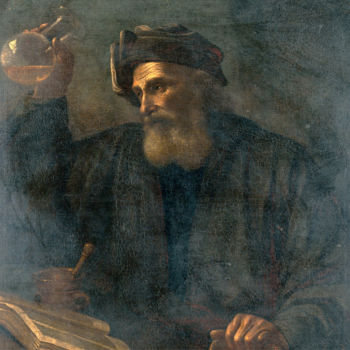Malleable Texts, Fluid Authorships: Galenic Medicine and Late Antiquity
Workshop of SFB research project A03 in cooperation with BBAW research project and University of Warwick (Organised by Prof. Dr. Philip van der Eijk & Dr. Caroline Petit), 07.–08.07.2023
01.09.2023
Workshop of research project A03 "The Transfer of Medical Episteme in the ‘Encyclopaedic’ Compilations of Late Antiquity" of Collaborative Research Center 980 "Episteme in Motion" in cooperation with Academy research project "Galen of Pergamum. The Transmission, Interpretation and Completion of Ancient Medicine" at Berlin-Brandenburg Academy of Sciences and Humanities and of University of Warwick
Organised by Prof. Dr. Philip van der Eijk & Dr. Caroline Petit
time:
July, 7-8 2022
place:
Berlin-Brandenburgische Akademie der Wissenschaften Unter den Linden 8
10117 Berlin
Research on ancient pharmacological texts has increased dramatically in recent years. Several important projects and doctoral theses are underway, promising to deliver ground-breaking results in the next decade. In this scholarly context, various projects at the Humboldt-Universität and the university of Warwick seem to address converging questions on the changing nature of pharmacological texts across time and space. Authorship becomes more fluid, with the same text receiving various attributions; texts undergo changes of size, ordering, format, as they get adapted for new audiences. As texts become repackaged, manuscripts and papyri offer privileged evidence of those changes. Early translations of Greek works into Latin, Syriac and then Arabic result in epitomes and other reworked, shortened texts. Yet the transmission of ancient Greek pharmacology is often made difficult to apprehend due to missing links and medieval, fragmentary evidence. This workshop therefore proposed to offer complementary perspectives on those shifts, through communications on Greek, Latin and Arabic evidence. Themes addressed included language, style, authorship, dating, transmission, manuscripts.
